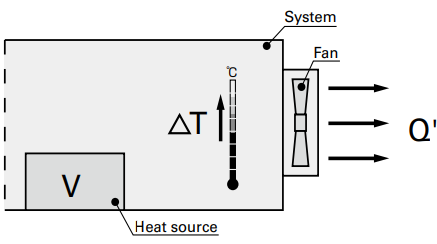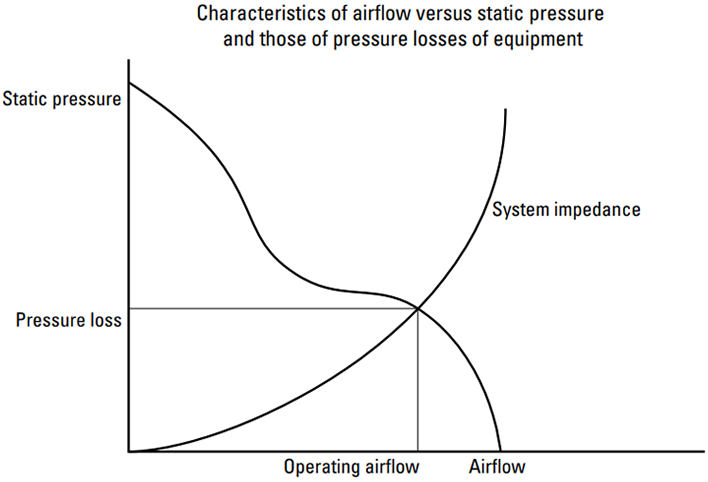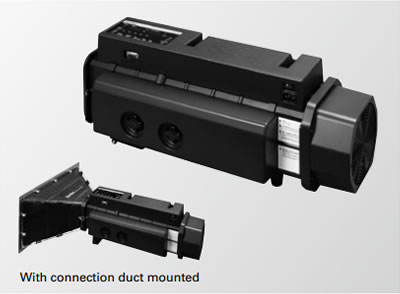Technical Material
Guideline in Selecting a Fan
The following example is a guideline regarding how to select an appropriate fan for cooling your system
Determining of your system specifications and conditions
Determine the temperature rise inside your system and obtain the total heating value inside your system on the basis of its inputs and outputs.
Example
V: Total heating value of your system (W)=100 (W)
△T: Inside temperature rise (K)=15 (K)

Calculating the required airflow for cooling
After the equipment specifications and conditions of your system have been determined, calculate required airflow to meet the conditions.
(Note that the formula shown below only applies when the heat radiation is performed only by cooling air from the fan.)

Selecting the fan
After the motion airflow has been calculated, select an appropriate fan motor based on the value.The motion airflow when the fan motor is actually mounted in your system can be obtained using the airflow-static pressure characteristics curve and system impedance.However, the system impedance cannot be measured without a measuring equipment, so fan with 1.5 to 2 times higher airflow than the actual max airflow should be selected (operating airflow is one-third to two-thirds of maximum airflow).
Example
Q: Maximum airflow (m3/min)
Q'=Q×2/3
Q=Q'×3/2=0.33×3/2≒0.5 (m3/min)
Next, In case that you select a fan having an airflow of 0.5 (m3/min) or more and a appropriate size for the space inside your system.
For example, If you need a fan of 60 mm square, 25 mm thickness and 12 V, you should select is 9RA0612H4001 (maximum airflow = 0.54 m3/min).

Confirming the selected fan
Calculate the temperature rise inside your sysetem when your sysetem having 100 (W) of total heating value is forcefully cooled down by a 9RA0612H4001 fan.
Example
Q'=Q×2/3=0.54×2/3≒0.36 (m3/min)
△T=V/20Q'=100 (W)/20×0.36 (m3/min)≒13.9 (K)
From the above, the temperature rise inside your system is calculated as 13.9 (K).
Since the value obtained from the above equation is only a rough target, final fan selection should be based on your actual installation test.
San Ace Airflow Tester
■Features
Enables the selection of the optimal fan for a device
An optimal fan for a device can be selected by entering accurate measurement results into thermal design simulation software.
Compact and lightweight
With a compact design and weight of approximately 6 kg, it is portable enough to measure immobile equipment.
Please refer to Product Site for detail.

Last updated: September 2024












